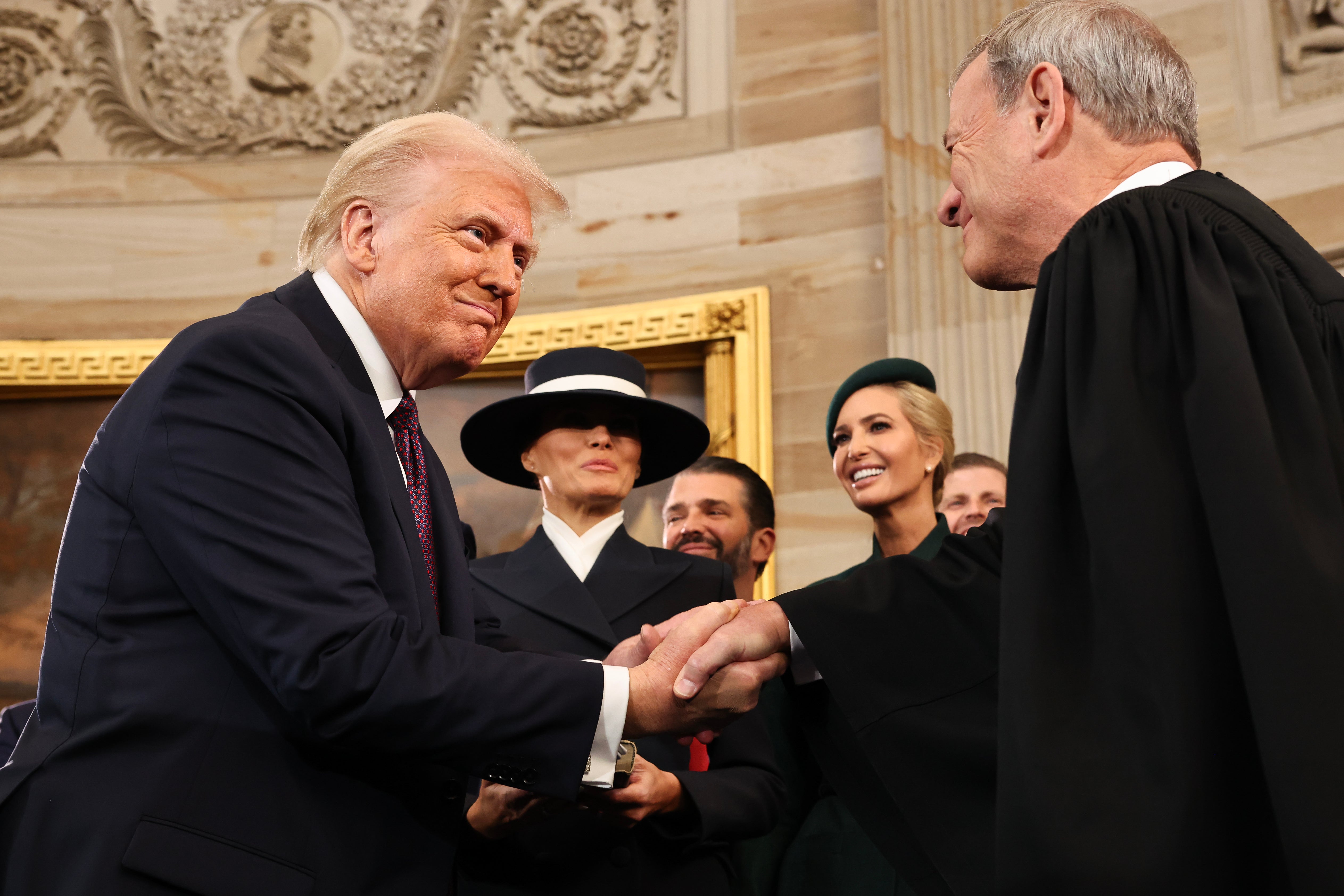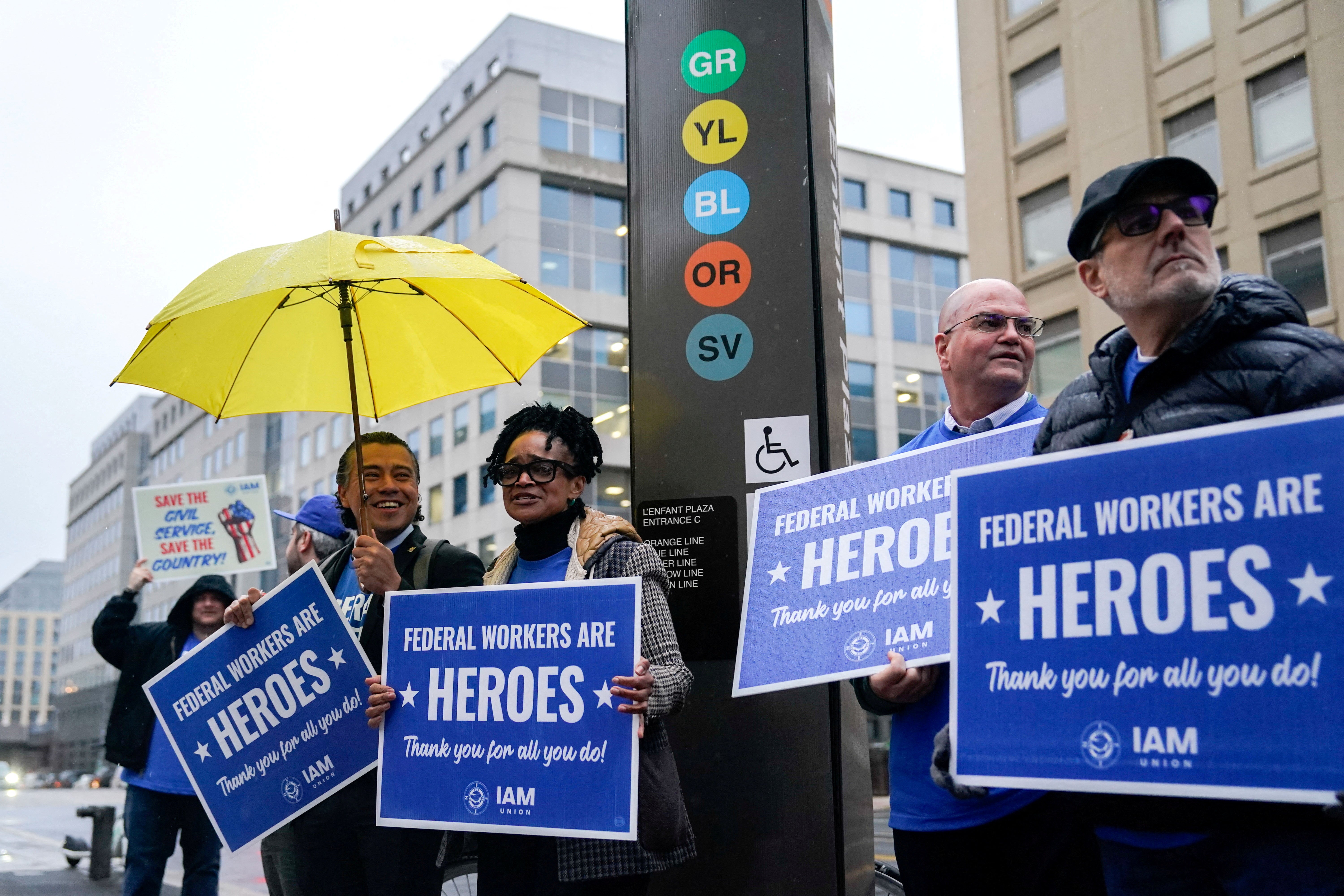Multiple federal court judges have accused the Trump administration of deliberately defying court orders by being slow to respond, misrepresenting facts in filings, and not taking prompt action as President Donald Trump continues an unprecedented campaign to expand his executive authority.
In an analysis of 165 court orders filed against the Trump administration, the Washington Post found that it was accused of resisting court orders in at least 57 of those cases – approximately 34 percent.
Since taking office, Trump has sought to implement his agenda as swiftly as possible, particularly in cases involving his immigration policies and attempts to drastically reduce the federal workforce.
Despite multiple district court judges issuing temporary injunctions to stop the administration from deporting immigrants without due process or sending them to third countries they’ve never been to, filings indicate the administration has continued its efforts.
This has, most notably, occurred in the case involving Kilmar Abrego Garcia, a Salvadoran immigrant who was previously granted permission to remain in the U.S. by a court. The administration inadvertently sent Abrego Garcia to a maximum security prison in El Salvador, under accusations that he was a gang member.

Multiple courts, including the U.S. Supreme Court, ordered the administration to “facilitate” Abrego Garcia’s return, yet officials made no swift efforts – leading to a judge’s admonishment.
“Defendants have failed to respond in good faith, and their refusal to do so can only be viewed as willful and intentional noncompliance,” Judge Paula Xinis, appointed by former president Barack Obama, said after the administration failed to provide updates on how it was returning Abrego Garcia.
It was just one of several immigration cases in which judges have raised concerns about the administration not following orders.
In April, D.C. Judge James Boasberg, appointed by Obama, admonished the administration for “willful disobedience of judicial orders” after they did not comply with his order to turn around planes carrying dozens of people to a prison in El Salvador.
“The Constitution does not tolerate willful disobedience of judicial orders — especially by officials of a coordinate branch who have sworn an oath to uphold it,” Boasberg wrote.
Accusations against the administration have also occurred in cases involving the federal workforce.

Also in April, Judge Amy Berman Jackson, appointed by Obama, raised “significant grounds for concern” that the administration was deliberately disobeying her order to keep more than 1,000 employees with the Consumer Financial Protection Bureau.
“There is reason to believe that the defendants simply spent the days immediately following the Circuit’s relaxation of the Order dressing their RIF in new clothes, and that they are thumbing their nose at both this Court and the Court of Appeals,” Jackson wrote.
In a statement from the White House, spokesperson Harrison Fields denied the Trump administration was defying court orders.
“The President’s attorneys are working tirelessly to comply with every outrageous ruling issued by radical leftist judges. If not for the leadership of the Supreme Court, the Judicial Branch would collapse into a kangaroo court run by Democrat judges committed to trampling the Constitution. If the Washington Post were interested in a real story, it would write about the continued attempts to circumvent the U.S. Supreme Court,” Fields said.
Courts can hold the administration accountable with contempt hearings for noncompliance but they’re traditionally slow to bring such action because many of the rulings are being appealed.
Hearings in which a party is found noncompliant can result in fines or imprisonment.
But the U.S. Marshal Service, a federal law enforcement agency tasked with serving as security for the federal judiciary, can serve subpoenas or warrants as well as make arrests when indicated by a court.
But some experts raised concerns that, under Trump’s authority, the Marshal Service would not carry-out those orders.
Trump and his officials consistently lash out against judges who rule against them, misrepresenting them as Democratic and far-left extremists.
A vast majority of the accusations have been brought by Democratic-appointed judges in immigration cases, but a handful of Republican appointees, including two judges tapped by Trump, have also either accused or raised questions about the administration’s compliance.
Jessica Roth, a former federal prosecutor and professor at Cardozo School of Law, told The Hill in April that it was “deeply distressing” to see lawyers for the government act this way.
“This is extremely unusual behavior, both from the administration and from the lawyers representing the administration in court, and it’s deeply distressing to see the behavior from these Department of Justice lawyers, which is not the norm for how Department of Justice lawyers conduct themselves in court,” Roth told The Hill.
The situation has been made more concerning by the fact that the Supreme Court has continued to allow the administration to seemingly circumvent court orders without ramifications.
Editor’s note: This article has been updated to reflect the White House’s response.

